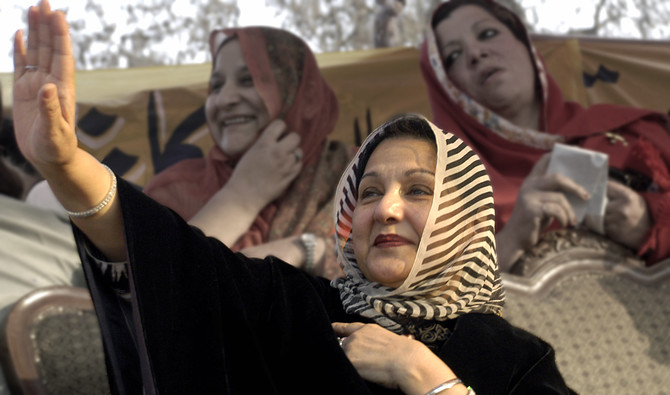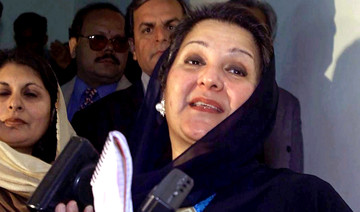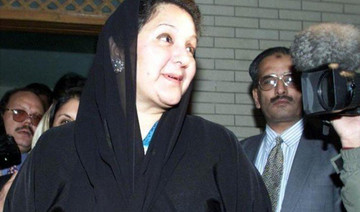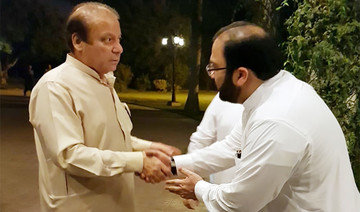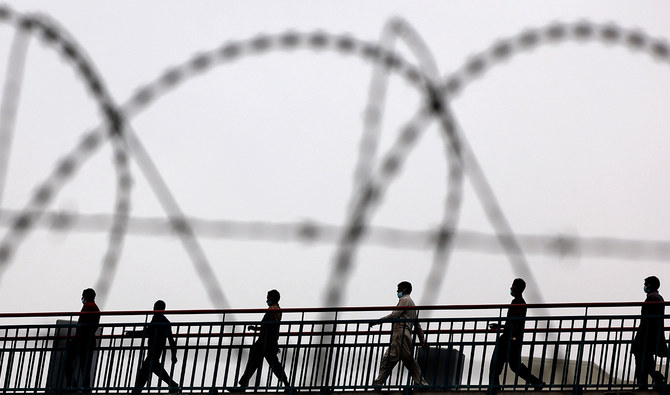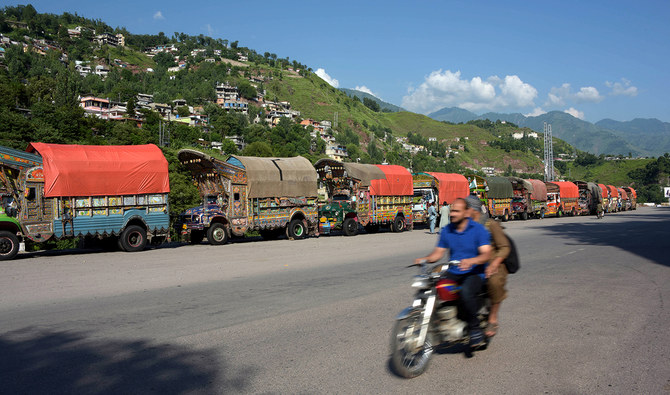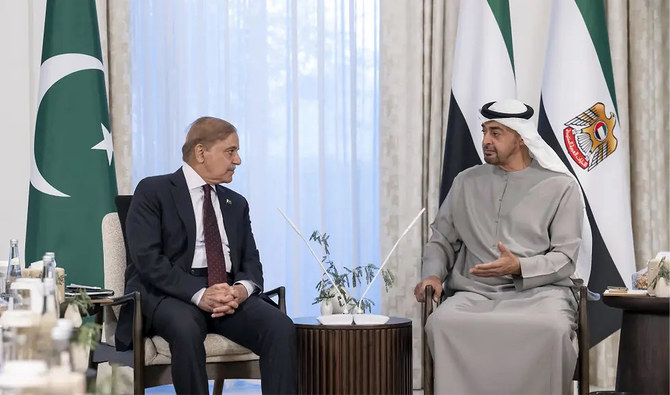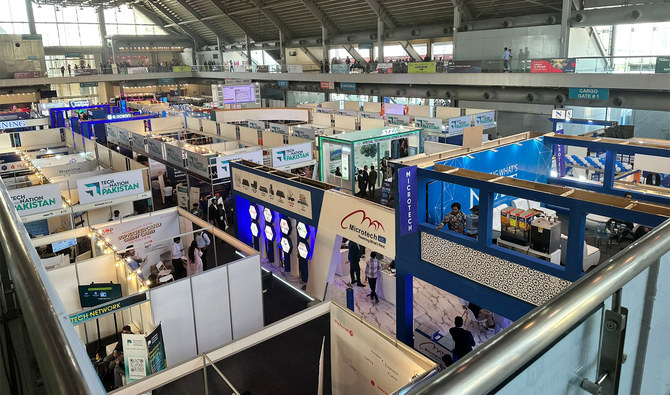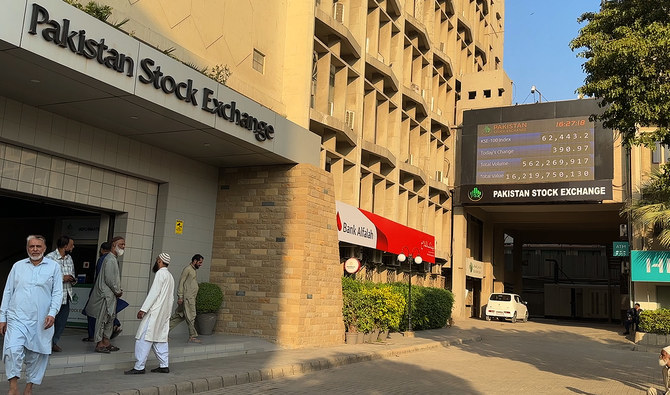LAHORE: As the nation continues to mourn for its beloved Begum Kulsoom Nawaz, who will be buried in Lahore on Friday, many who knew Pakistan’s “iron lady” describe her a tender-hearted individual with great appreciation for the finer sensibilities of life.
Born in 1950 to a middle-class Kashmiri family in Lahore, Kulsoom’s father was a doctor who ran his own clinic in Misri Shah. Kulsoom, on the other hand, acquired a postgraduate degree in Urdu Literature from the University Oriental College. A lover of art and literature, she indulged in left-leaning activism during her student life and was known to be extremely articulate in conducting herself from an early age. A thesis titled “Study of Cultural Awareness in Rajab Ali Baig Saroor’s era” went on to become a book and was later published by Sang-e-Meel, in 1985.
“Kulsoom Rehana Hafeez [her maiden name] always espoused left-wing politics. She was an ardent admirer of Zulfikar Ali Bhutto and participated in political activities that supported his [Bhutto’s] movement,” Khawaja Muhammad Zakaria, former dean of the Faculty of Arts and Literature, University of the Punjab, who was also Kulsoom’s teacher, told Arab News on Thursday.
All that changed after her marriage to Nawaz Sharif on April 2, 1971 when she was thrown into the deep end of politics, with Nawaz holding office as prime minister for three terms.
And while she did not participate in any political activity, Kulsoom spearheaded the movement for the restoration of democracy in the country and fought for the release of her incarcerated husband after he was overthrown in a military coup, led by former president General Pervez Musharraf, in October 1999. In July 2000, placed under house arrest, she defied the regime’s order and left her Model Town residence to lead a protest rally against the incumbent government.
This was also the time when differences between Sheikh Rashid, federal minister for railways, and the Sharif family began to emerge, following comments made by Rashid where he had said that “we will not allow any woman in Pakistan to become Rabri Devi”. Devi is an Indian politician from Bihar who served three terms as chief minister of her province after her husband, Lalu Prasad Yadav, resigned in the wake of corruption charges.
Salman Ghani, a senior journalist and a confidante of the Sharif family, told Arab News that Kulsoom was hurt by those words and “broke into tears in front of her husband who was confined in the Attock Fort”.
A major change came in her life when she was made party president in 1999 and held office until 2002. “This was not her choice since she never wanted to actively participate in politics,” Ambreen Adeel, a close family friend, said. Instead, Kulsoom preferred to “lead a domestic life and take care of her husband and children”.
With Nawaz imprisoned for corruption charges, Kulsoom contested the National Assembly seat from Lahore this year and won, but could not take the oath of office due to her fragile health.
Life dealt a blow in August last year when Kulsoom was diagnosed with early-stage lymphoma. She began treatment at London’s Harley Street Clinic, undergoing multiple surgeries and at least five chemotherapy sessions during the time. She was finally placed on life-support from July this year.
She died at the age of 68, in London, on Tuesday.
Reflecting on how ambitious she was to pursue a PhD degree, Fakharul Haq Noori, Principal of University Oriental College and a family friend, said: “She submitted a synopsis titled ‘Reflection of Nature in Urdu Poetry’ in 1992, though she could not pursue her passion”.
Noori added that Kulsoom chose her family over her future education – something which had become “difficult as she was now married to the country’s prime minister”.
Or “Bao Gee” – the term she used to refer to Nawaz throughout the duration of their married life. It all began when Kulsoom’s elder brother, Latif Hafeez, decided to get married to Nawaz’s distant relative. It was there that the future power couple saw each other and eventually decided to get married.
Former Punjab Governor, Mian Azhar, recalls an interesting observation he had made about Kulsoom. When someone told him that she was spearheading the campaign for her husband’s release from prison, he said: “She is a brave lady. As someone born into a family of pehalwans (wrestlers), she has to be brave” – a veiled reference to the fact that Kulsoom was the granddaughter of legendary wrestler Rustam-i-Zaman Gama Pehalwan.
And while observers said she will be remembered for her feistiness and her warmth, it was her positivity that left a lasting impression on anyone she met. “I interviewed her for my magazine on telephone. Later, we met at Alhamra Hall where she had come to attend a seminar on education. When I told her my name, she recognized me immediately and met so warmly that it seemed we had been friends for life,” Ambreen Fatima, a feature writer at the Nawa-e-Waqt magazine, said.


